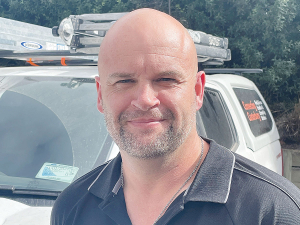Editorial: Rural sector deserves better
OPINION: The phasing out of copper network from communications is understandable.
 Mike Smith says getting fast broadband to rural areas of New Zealand is the last great challenge for the country’s Internet network.
Mike Smith says getting fast broadband to rural areas of New Zealand is the last great challenge for the country’s Internet network.
OPINION: Getting fast broadband to rural areas of New Zealand is the last great challenge for the country's Internet network.
Former Prime Minister John Key recently said that one of the top achievements of his time in government was ultra-fast broadband. The rollout of fibre arrived in time to be a vital help for communities during Covid lockdowns and is now an essential service for all kinds of social and economic reasons.
But Key also said he was concerned about the rural/urban divide with a number of people unable to get access to fibre Internet.
Luckily, there is already a solution for many rural properties as New Zealand's wireless internet service providers, or WISPS, are working to link users with quality broadband and have been building their own networks to do this.
A lot of this work is being done as part of the Crown Infrastructure Partners' Rural Broadband Initiative project, which aims to improve access to 84,000 rural homes and businesses.
Many of its members are getting quality broadband to the most isolated of places. Wireless internet providers, or regional telecommunications providers, are delivering high quality broadband services to over 75,000 homes and businesses throughout regional New Zealand.
I know the sector well, being the founder of Ultimate Broadband (UBB), a wireless provider in Canterbury.
Fibre expansion is critical to extending ultra-fast connectivity to regional New Zealand, particularly by providing capacity to the wireless networks that WISPs operate.
These wireless networks are the backbone of rural New Zealand’s connectivity, often providing much-needed high speed broadband and services where others cannot.
As fibre moves further into the regions, WISPS can increase the capacity of their services, which means faster broadband connectivity for the regions.
It has a massive flowon effect for rural New Zealand.
WISPS offer a full range of services beyond their wireless infrastructure. For example, many WISPS are already investing in their own fibre networks to expand past the current UFB or rural fibre footprint.
A regional focus and a can-do attitude go a long way to making these things happen.
A regional focus and a can-do attitude go a long way to making these things happen.
WISPA NZ, alongside TUANZ and many ruralfocused groups, has been pushing for a 10-year plan for broadband connectivity to ensure regional New Zealand is not left behind. This calls for industry and Government to work together to ensure more investment gets the desired outcomes.
It’s really important to remember that there is no single solution that will close the connectivity gap. Instead, a mixture of solutions is required that together will ensure there is equality between urban and rural connectivity.
WISPA welcomes more discussion on closing the connectivity gap and is always keen to hear ideas of how to do this.
For more information go to: www.wispa.nz
Mike Smith is head of WISPA NZ and founder of Ultimate Broadband, a Canterbury wireless internet provider.
On Friday, Gisborne played host to the inaugural Citrus New Zealand Awards dinner, where more than 140 growers, industry leaders and guests from across the country gathered to celebrate excellence in the sector.
An independent report, prepared for Alliance farmer shareholders is backing the proposed $250 million joint venture investment by Irish company Dawn Meats Group.
Whangarei field service technician, Bryce Dickson has cemented his place in John Deere’s history, becoming the first ever person to win an award for the third time at the annual Australian and New Zealand Technician of the Year Awards, announced at a gala dinner in Brisbane last night.
NZPork has appointed Auckland-based Paul Bucknell as its new chair.
The Government claims to have delivered on its election promise to protect productive farmland from emissions trading scheme (ETS) but red meat farmers aren’t happy.
Foot and Mouth Disease outbreaks could have a detrimental impact on any country's rural sector, as seen in the United Kingdom's 2000 outbreak that saw the compulsory slaughter of over six million animals.

OPINION: For years, the ironically named Dr Mike Joy has used his position at Victoria University to wage an activist-style…
OPINION: A mate of yours truly has had an absolute gutsful of the activist group SAFE.